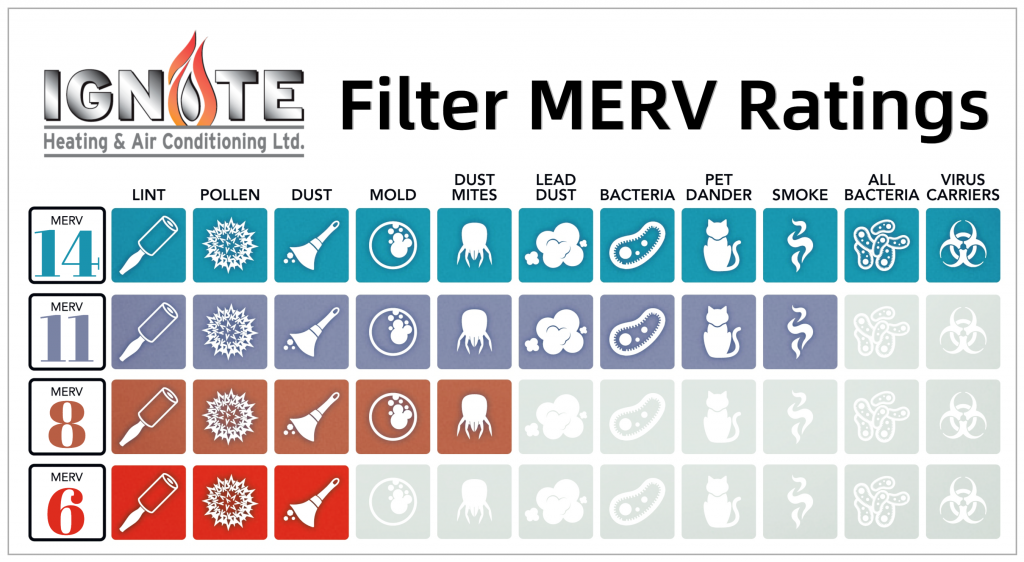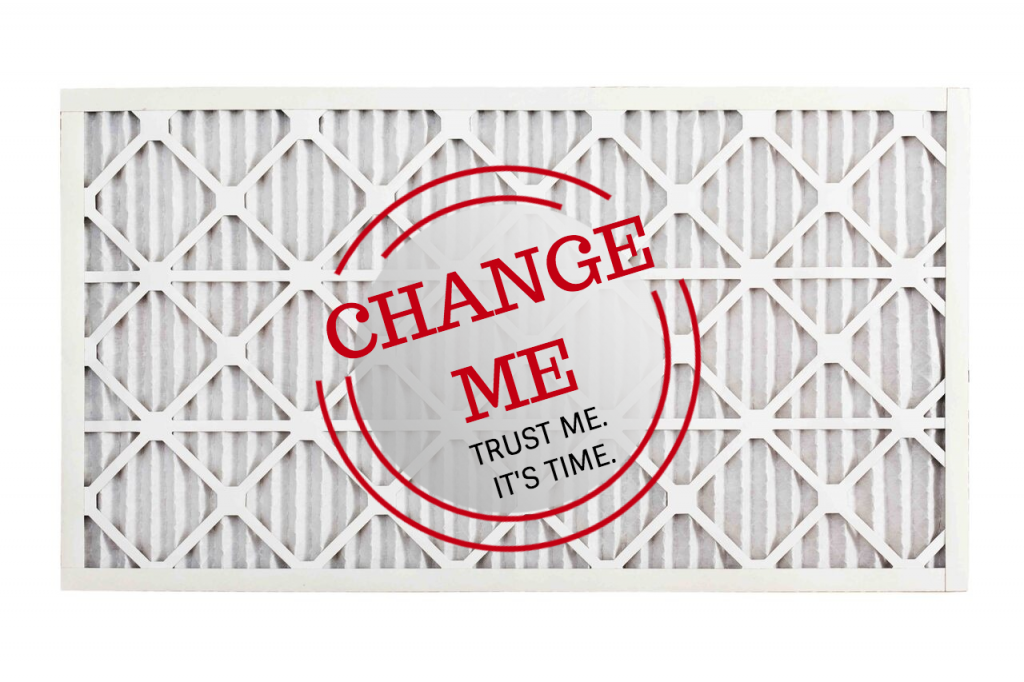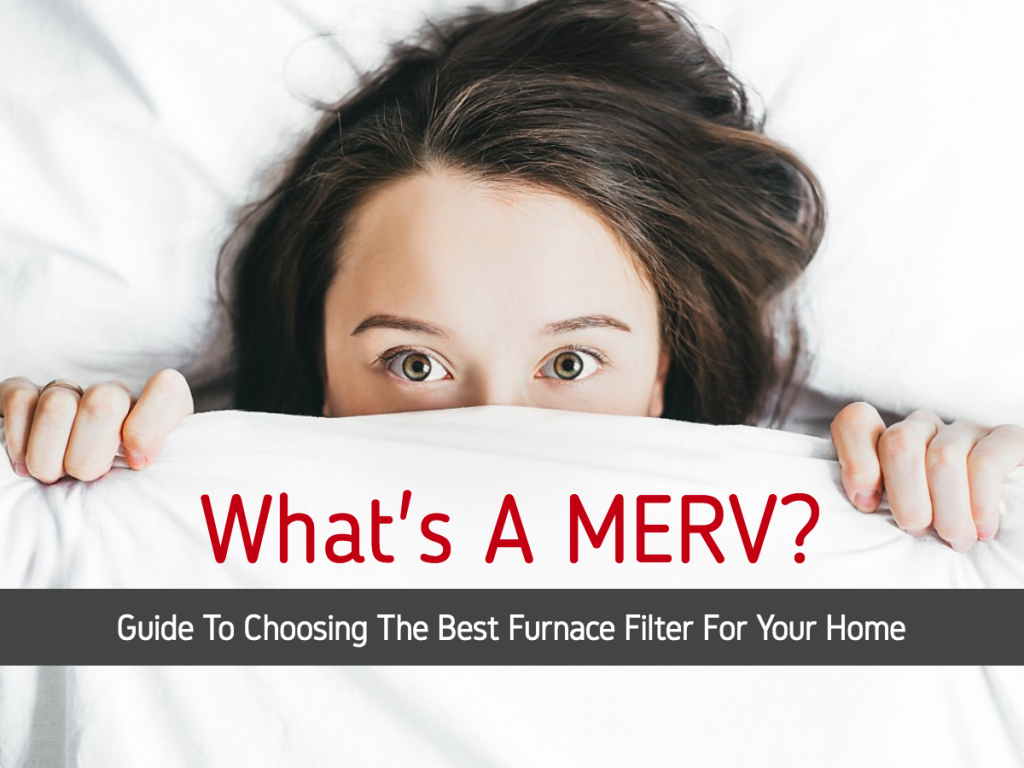As spring approaches, your air filter can make a big difference in your indoor air quality in your home. We recommend changing your furnace filter every 3 months (it’s that time again!), but how do you choose the best filter for your HVAC system? And what are filter MERV ratings anyways? Let us help you better understand how filters are rated and how you can choose the best filter for your home.
MERV is an abbreviation for Minimum Effective Reporting Value. Simply put, your filter’s MERV rating tells you, on a scale of 1-16 how effective your filter will trap small particles. In regards to filters, the higher the MERV rating, the fewer dust particles and other contaminants can pass through it. The American Society of Heating, Refrigerating and Air-Conditioning Engineers (ASHRAE) designed the MERV scale to represent a filter’s worst possible performance at removing particles .3 to 10 microns in size (that’s really small!).
MERV ratings are divided into three categories – low-efficiency, medium-efficiency, and high-efficiency. Medium-efficiency MERV ratings of approximately 8 to 11 (as shown below) are adequate at removing airborne dust and contaminants in a residential space. High-efficiency filters (MERV 14-16) are typically reserved for hospitals, restaurants, and other public facilities. MERV 14 and higher filters are efficient but are large and bulky but they’re perfect for people who are prone to illness and need the cleanest most sterile environment possible. They aren’t normally recommended for residential use since they can restrict airflow. Filters with MERV ratings between 6-8 are the cheapest ones and are considered the bare minimum of efficiency. These basic filters would only be adequate for catching large portions of airborne particles and for homes without furry pets.

According to studies, Canadians spend about 21 – 24 hours a day indoors, on average. With indoor concentrations of some pollutants often 2 to 5 times higher than typical outdoor pollutants, your indoor air quality is very important to the health of your family. However, with proper air filtration and ventilation, you won’t be circulating all of those contaminants that can make your family sick. We don’t realize how many allergens and contaminants we’re breathing when we are indoors. Although it may seem easier and healthier to breathe inside, our indoor environments can contain pollutant levels many times greater than the levels outside. It seems counter-intuitive. You may be thinking – shouldn’t the outdoor air be dirtier? I keep my home clean! The answer is insufficient ventilation increased us of synthetic materials, and lack of filtration – and that’s where your furnace filter becomes your best defence against pollutants indoors. Installing the correct MERV rated filter can help you eliminate harmful contaminants from your home.
Another effective way to improve your indoor air quality is to install a HomeShield™ UV Purification System on your existing HVAC system. With both of these tools, you can breathe easier and cleaner in your home.

How long has it been since you last changed your filter? If you replaced your filter as per our recommendation in January, it’s time to do it again! Replacing your filter not only improves your indoor air quality, but it can also improve your heating and cooling system’s airflow and efficiency. This can help lower your utility bill and extend the life of your equipment.
Call us today and let us equip your home with the proper MERV rated furnace filter that can improve your home’s air quality. Regular filter replacements are a simple but effective way to reduce allergens and debris in your home. We stock many popular sizes of filters at affordable prices. Call Ignite Heating and Air Conditioning Ltd. at (780) 919-4916 or contact us anytime online. At Ignite, your comfort is our concern.

